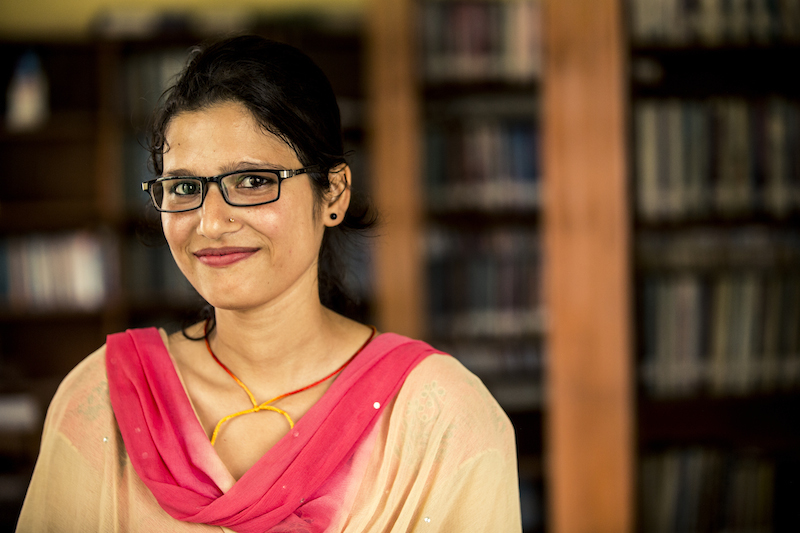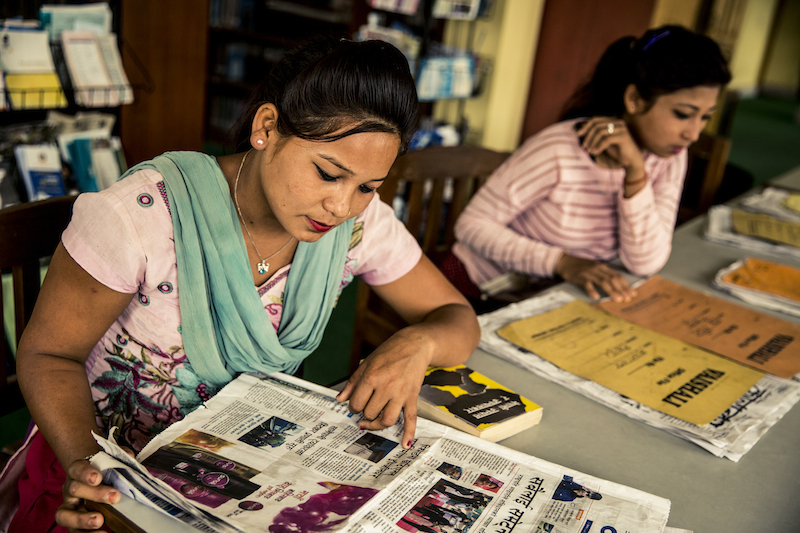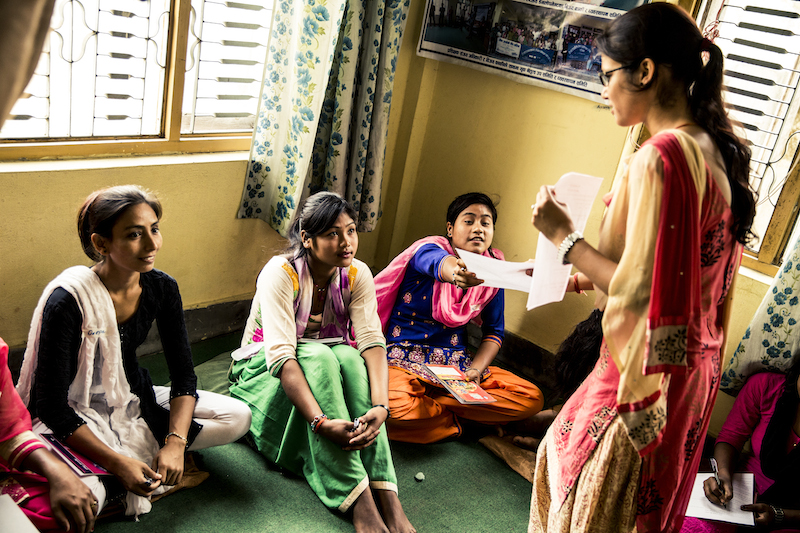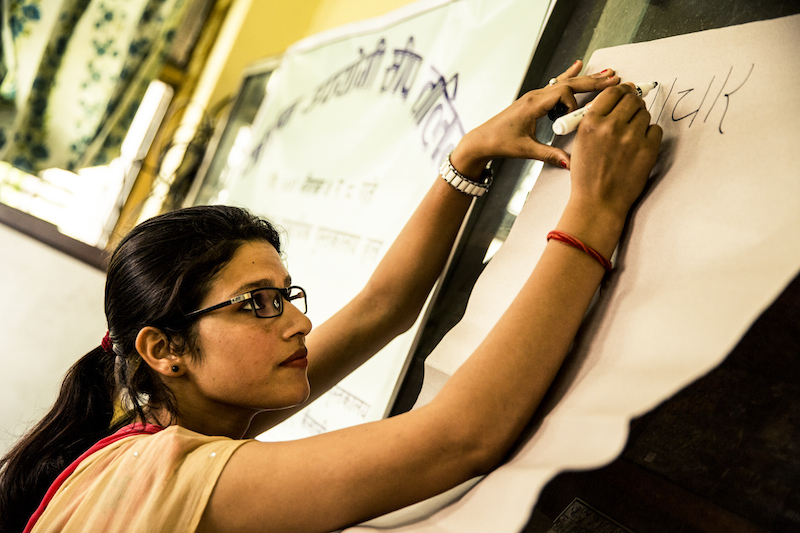
Following along with Ganga as she shares her story, one would feel hard pressed to believe she once was so timid, her own mother could barely urge her to speak. For someone like Ganga, friends were hard to come by – with little confidence to speak, having a conversation with her was often difficult. Feeling isolated and unsure, Ganga found her way to the Tikapur READ Center, a place where books could keep her company.
Ganga spent well over six years going to the Center, pouring over its varied resources – from its literacy courses, to computer stations, and space to connect with other women. Eventually, Ganga realized in order to realize her potential, she needed to get better at speaking in front of others so she could have deeper friendships and know how to hold attention in a room. She finally decided to join the book club offered by the Tikapur Center. It was there that she began to do the unthinkable: learn to speak her opinion in front of others.
Suddenly, Ganga not only found herself in a position where she was given a platform to learn to speak with confidence – she was given a venue to see how her thoughts could pave a path for others to become more motivated, and lean in to their own strengths. The very act of public speaking began to change the way she saw herself. Motivated in a whole new way, Ganga avidly began to immerse herself in the Center’s life skills trainings and leadership courses. As she dove deeper into her trainings, it became very apparent that the divide between genders had a staggering effect on her community. She noticed there was a perception that young women were only expected to involve themselves in household chores and family matters, rather than engaged in schooling or trained in skills to gain work. Women could barely read signs hung about the streets surrounding the library.

“READ Centers are very important in rural communities, especially for the youth. For them, a solid curriculum is not enough – READ Centers provide access to reference materials for all their studies. For those that don’t have good, quality education, young people can grow through computer skills and youth engagement activities to empower themselves.”
This is not a new story for a woman in rural Nepal — often, women find themselves unable to obtain jobs to improve their way of living, as even leaving the house without a man would be seen as forward-thinking. In an area still held tight under the thumb of an ancient caste system, women very rarely have safe spaces in their communities where they can learn new skills. Harder still, to find a place to congregate and discuss otherwise taboo subjects such as feminine hygiene, and women’s rights. Ganga soon realized that she needed to step into her strength, and become a support system for other women yearning to improve their own lives.
As she engaged further with the programs available at the READ Center, Ganga began to see the brighter future available to her and her community. She believed things could change if women knew how to become more powerful through learning and organizing. Becoming an empowered woman pushed her to think not only of her own life – she was now determined to provide opportunities to others who found themselves deprived of opportunity, education and self confidence.
Ganga began to take more Human Rights and Gender Based Violence or Women’s Rights workshops to better her grasp on the subjects.

“Because of my work at the READ Center, I’m now able to conduct trainings myself. My future plans are to work for the community on social development by being engaged in a local organization, so I can empower other women in my community.”
With this knowledge tucked into her mental tool kit, Ganga began to run her very own Women’s Rights groups and Human Rights workshops. Courses such as these are very new to a country like Nepal, and even more surprising that they are now found in a rural area such as Tikapur. Undeterred, Ganga watched as young women poured in to participate in her workshops. There, they learned how to take care of themselves physically and mentally. They listened as Ganga taught them how to create the kind of community that would look to women as change agents, making it possible for them to be elected as political leaders, work for the local government or a local NGO, or even change the way a community voted.

“I now see myself as a role model in my community – I now know girls can do anything if proper opportunities are provided for them.”
Now, Ganga can be found participating in and conducting a wide variety of workshops in the Tikapur READ Center, as well as through a variety of other local NGOs.
Ganga is a wonderful example of the kinds of social change that can grow out of supporting women’s empowerment courses like those offered at READ. With a variety of programs offered through safe spaces for women of all ages, READ Centers offer classes focusing on building literacy, technology, business competency and women’s leadership trainings. Join Ganga in her hope for brighter futures for young women all across South Asia by making a donation today!




